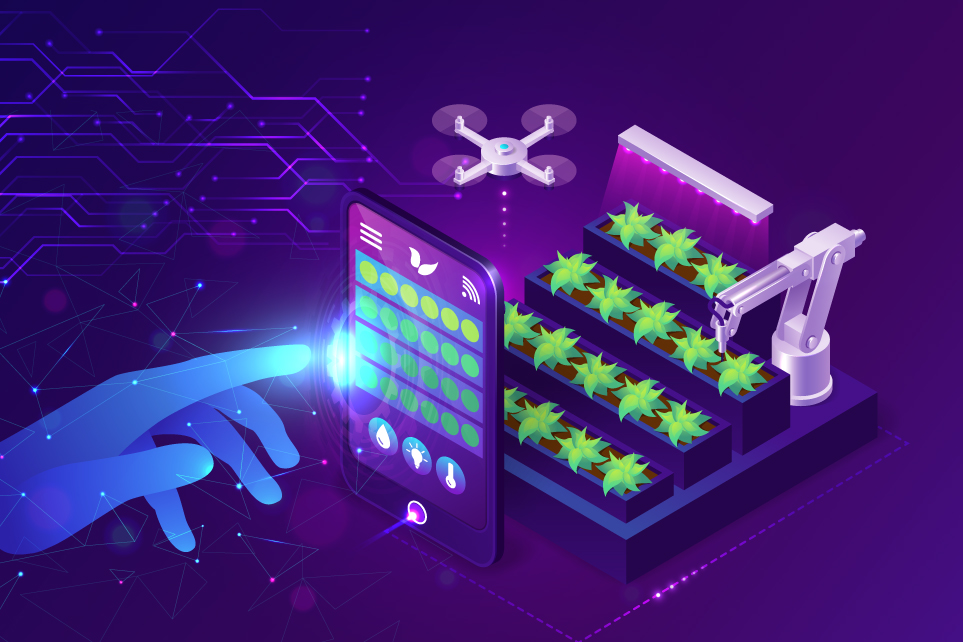Worldwide, agriculture is a $5 trillion industry, and now the industry is turning to AI technologies to help yield healthier crops, control pests, monitor soil and growing conditions, organize data for farmers, help with workload, and improve a wide range of agriculture-related tasks in the entire food supply chain.
By leveraging AI, farm enterprises and farmers will be able to enhance agriculture production to meet the food demands in need of the hour. Since humans work hard and can only perform for some hours, machines have no fixed time to work. The lack of strong decision-making abilities can lead the inadequate and indecorous decisions. Conversely, AI-powered machines better learn the situations or environment and make strong decisions.
So let’s take a look at the impact of AI and how it is revolutionizing this sector:
Monitoring Crop Health
Advanced technologies such as remote sensing accompanied by the 3D laser scanning are helpful and can provide crop metrics across thousands of acres of farming land. It can bring revolutionary changes from the perspective of time and efforts are monitored by the farmers.
With the help of emerging solutions, farmers and farm enterprises can make better decisions during the farming as well as can assess a variety of things like weather conditions, temperature, water usage, or soil conditions in real-time.
Providing Image-Based Insights
With the help of computer vision technology and drone-based data collected, farmers can take immediate actions in real-time in order to generate the alert to speed up precision farming. This is one of the significant areas in today’s farming. Computer vision technologies can be deployed in areas including disease detection, crop readiness and identification, field management, and soil survey and mapping.
Managing Environmental Challenges
Environmental challenges like climate change and others are the biggest threats to agricultural productivity, but AI-powered techniques and data-driven farming can help in making it easier for farmers to navigate shifts according to environmental conditions. It assists to address climate change by powering smarter resource management.
Precision Farming
In this process, farmers can detect pests, diseases in plants, and poor plant nutrition of farms with the help of AI. Also, AI sensors can identify and target weeds and then decide which weed killers or herbicides to apply within the right zone. It assists to thwart over application of herbicides and excessive toxins that find their way in today’s daily food.
By leveraging AI, farmers are also creating seasonal forecasting models to enhance agricultural accuracy and productivity.
Conclusion
With a continuously increasing need for reliable food supplies, artificial intelligence can play a key role in supporting the agriculture industry in keeping up with the growing demands. Advances in the areas agricultural robots, aerial data collection, and mobile apps, often powered with computer vision, will allow the agriculture industry to increase efficiency and production rates.
We at AppleTech have the experience and the expertise to develop mobile apps and custom applications to help leverage technology for your agricultural gains. Contact us today!

